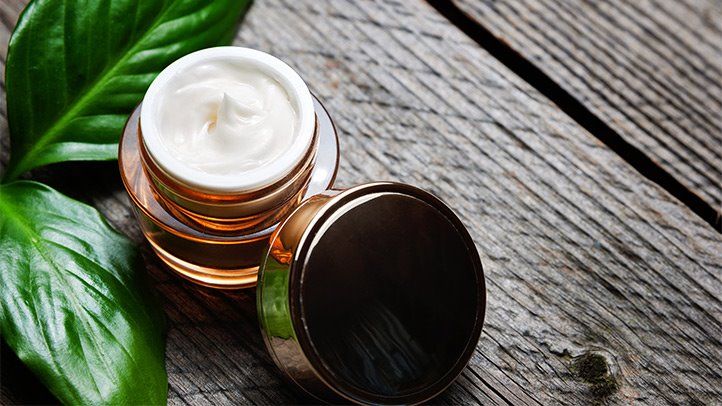With so many options, finding the right skincare products to effectively hydrate your skin can be complicated. To help you find the right solution for you, we’ve put together the most common hydrating skincare ingredients that you should look for in your hydrating serum, moisturizer, or any other product in your skincare routine.
Hyaluronic acid
Hyaluronic acid is one of the latest super-hydrators used in skincare. It’s also sometimes known as sodium hyaluronate. It’s so popular in hydrating skincare because it can hold up to 1000 times its own weight in water, acting like a magnet to draw water molecules in and bind them to the skin.
Hyaluronic acid is produced naturally by the body and helps to plump and hydrate the skin. So, hyaluronic acid skincare can be suitable for all skin types, including sensitive skin, depending on the other ingredients in the skincare product. It also has antioxidant properties, so can help protect the skin from environmental damage.
As we age, our bodies produce less hyaluronic acid. Topping up our supply by using skincare can help to reduce the appearance of fine lines and wrinkles by hydrating and plumping the skin. Hyaluronic acid works instantly, so you should notice the difference right away when using hyaluronic acid skincare.
Squalane
Squalane is derived from plants and mimics squalene, which is produced naturally by our bodies and found in sebum. Squalane is an emollient, so it covers the skin with a protective barrier to lock in moisture. It can be especially effective at hydrating dry patches of skin, by replenishing the moisture that’s been lost and repairing the skin’s barrier.
Because squalane mimics the squalene that’s found in skin naturally, it can be suitable for all skin types. Squalane is lightweight and non-comedogenic, meaning it won’t clog pores. This means it can be a great hydrator for those that have oily skin, as it will add hydration without being too heavy or leaving skin feeling greasy.
Polyglutamic acid
Polyglutamic acid is derived from glutamic acid, which is an amino acid. It’s a humectant, which means it draws water from the air and helps to bind it to the skin. It’s similar in this way to hyaluronic acid, but it’s thought that polyglutamic acid can hold more water than hyaluronic. Both ingredients work well together to hydrate the skin, especially as hyaluronic acid has the added benefit of antioxidant properties.
Polyglutamic acid helps to reinforce the skin’s moisture barrier to trap moisture and keep it plump. It can help to reduce the appearance of fine lines and wrinkles by hydrating the skin. Polyglutamic acid helps to improve skin’s elasticity, making it appear more youthful and dewy.
Glycerin
Glycerin is another humectant that’s popular in hydrating skincare. It draws water to the skin from the air and also from lower levels of skin, helping to retain moisture on the surface all day. Glycerin is found naturally in the skin so it can be beneficial and gentle enough to use on all skin types.
Glycerin has a small molecule size, so it can easily penetrate the skin. This reduces how much water will evaporate from the surface of the skin, helping to keep skin hydrated and prevent it from drying out.
Glycerin can have a thick, sticky texture, so it’s often diluted with other hydrating skincare ingredients, such as hyaluronic acid. Together, these ingredients can effectively hydrate the skin.
Ceramides
Ceramides form part of the skin’s natural barrier, which can help to lock in moisture. Hydrating skincare that contains ceramides can replenish the barrier, strengthening it to reduce moisture loss. Ceramides can be especially helpful if you have dry skin, as they will help to support your skin’s natural production of ceramides to reinforce the skin’s moisture barrier.
As well as locking in hydration, ceramides can also keep potential irritants out of the skin. This can help to reduce redness and irritation caused by these types of stressors, leaving your skin plump and glowing.

